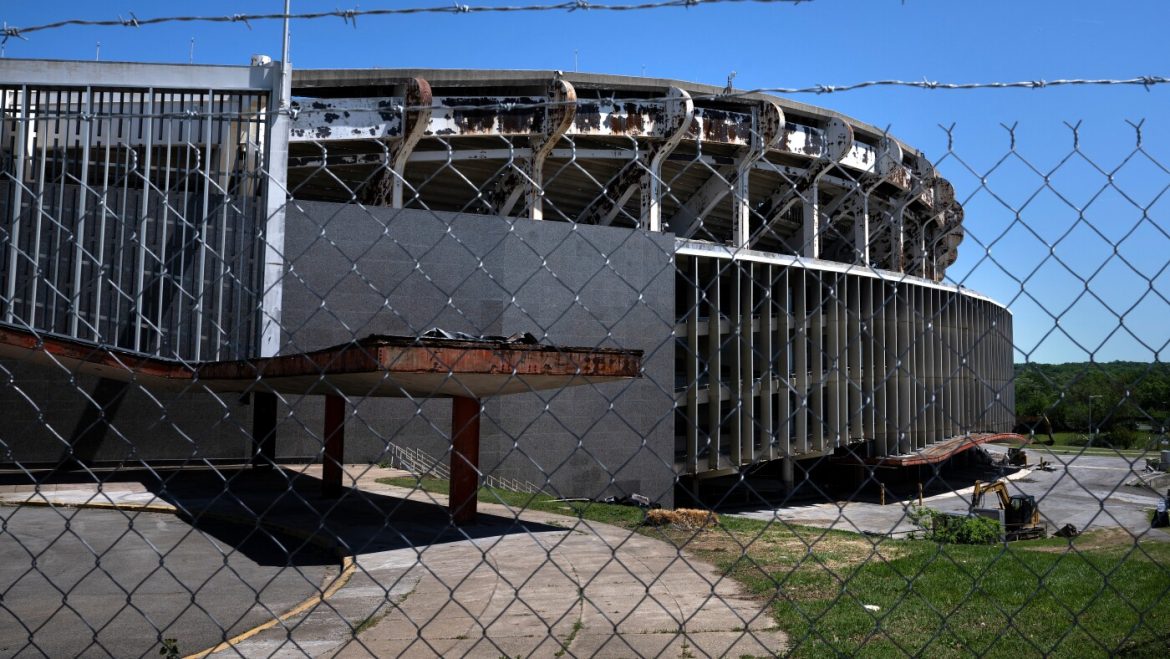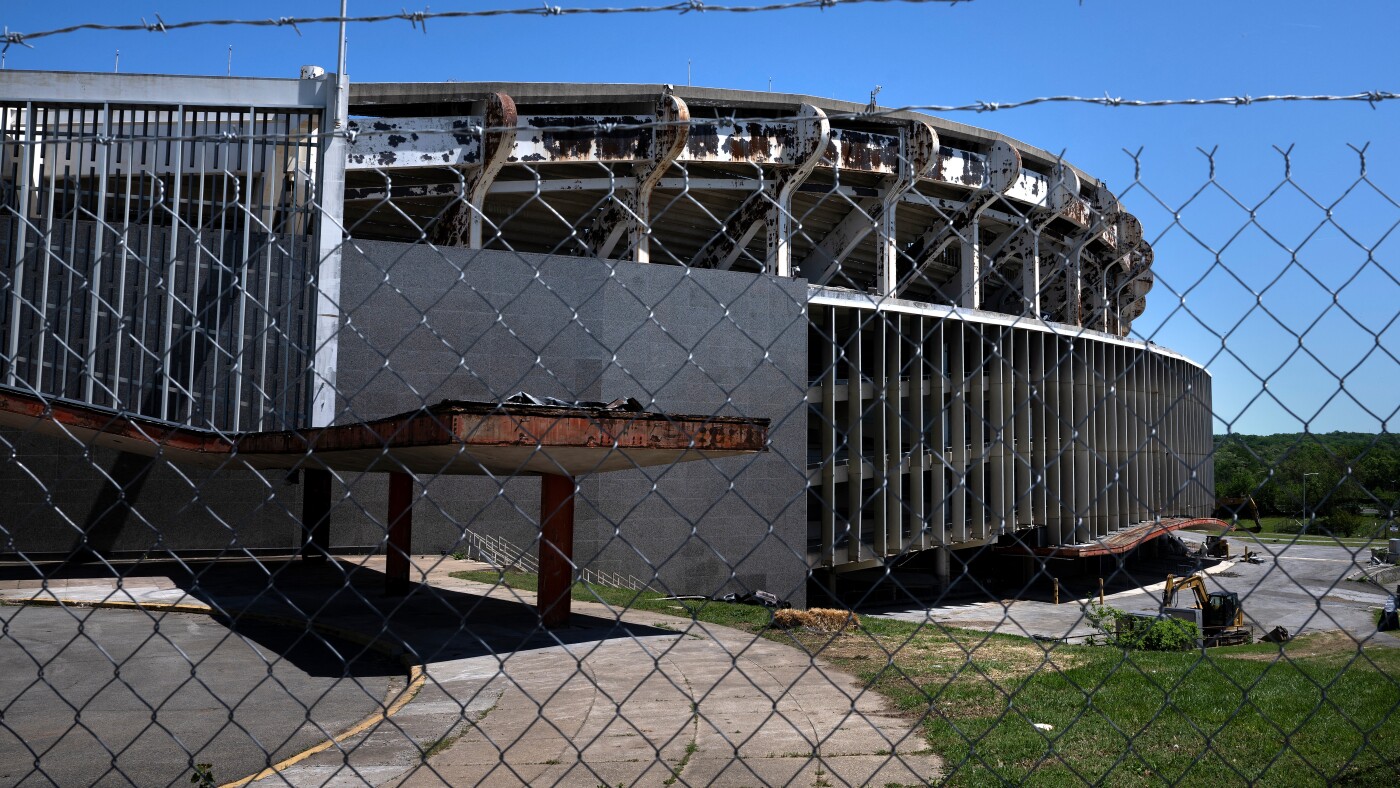The Echo Chamber: Trump, the Commanders, and the Lingering Ghosts of “Redskins”
The Specter of the Past: “Redskins” and Its Contentious Legacy
The name “Redskins” was never a neutral term. It carried the weight of a racial slur, a derogatory label rooted in the brutal history of violence and oppression against Native Americans. For decades, Native American groups and their allies fought to expose the inherent racism of the name, arguing that it perpetuated harmful stereotypes, dehumanized Native people, and contributed to a climate of discrimination. The term “Redskins” was not just a name; it was a symbol of historical trauma and ongoing marginalization.
The team’s former owner, Daniel Snyder, resisted these calls for change, clinging to the supposed tradition and heritage associated with the name. His defense of the name as a sign of respect was met with widespread outrage and derision. The eventual decision to retire the “Redskins” name in 2020, amidst growing pressure from sponsors and the broader social justice movement, was seen as a victory for Native American activists. The new name, the “Commanders,” while not universally loved, at least avoided the overt racism of its predecessor.
Trump’s Calculated Provocation: Identity Politics and the Culture War
Donald Trump’s recent threat to obstruct the Washington Commanders’ stadium deal unless they revert to their former name, “Redskins,” is more than just a political stunt. It is a calculated maneuver designed to ignite the culture war and energize his base. By championing the “Redskins” name, Trump is appealing to a segment of the population that feels increasingly marginalized and resentful of what they perceive as “woke” culture. This demographic often views changes like the Commanders’ name change as an attack on their heritage and values.
Trump’s strategy is consistent with his long history of exploiting racial anxieties and divisions for political gain. He has repeatedly used inflammatory language and coded appeals to stoke resentment and create a sense of “us vs. them.” His stance on the Commanders’ name change is simply the latest example of this playbook. Furthermore, Trump understands the power of nostalgia. For many fans, the “Redskins” name is intertwined with cherished memories of past glory and a sense of local pride. By calling for its return, Trump is tapping into this emotional connection, offering a vision of a return to a simpler, less contentious time – a time that ignores the painful realities of the past for many.
The Stadium Deal as Leverage: Power, Politics, and Public Funding
Trump’s threat to obstruct the stadium deal adds another layer of complexity to the situation. The construction of a new stadium in Washington, D.C., is a massive undertaking that requires significant public funding and political support. Trump’s influence, even out of office, could potentially derail the project or at least make it significantly more difficult to complete. By using the stadium deal as leverage, Trump is demonstrating his continued relevance in Republican politics and his ability to influence policy decisions, even at the local level. He is also sending a clear message to the Commanders’ ownership and the NFL: crossing him can have real consequences.
The stadium issue also raises questions about the role of public funding in professional sports. Many critics argue that using taxpayer dollars to subsidize wealthy sports franchises is unfair and that these funds could be better used to address pressing social needs. Trump’s intervention only intensifies this debate, highlighting the complex interplay between politics, economics, and public policy in the world of professional sports.
The Broader Context: Racial Justice and the Ongoing Struggle
Trump’s stance on the Commanders’ name change must be understood within the broader context of the ongoing struggle for racial justice in America. The past few years have witnessed a surge in activism and awareness around issues of racial inequality, sparked by events such as the murder of George Floyd and the rise of the Black Lives Matter movement. This heightened awareness has led to a re-examination of symbols and institutions that perpetuate racial stereotypes and discrimination. From Confederate monuments to offensive mascots, there is a growing recognition that these symbols have a real and damaging impact on marginalized communities.
Trump’s defense of the “Redskins” name is a direct challenge to this movement. It represents a rejection of the idea that symbols matter and that historical injustices must be acknowledged and addressed. His stance underscores the deep divisions that persist in American society over issues of race and identity. The debate over the Commanders’ name is not just about a sports team; it is about the broader struggle for racial justice and the ongoing need to confront the legacy of racism in America.
Beyond the Name: Addressing Systemic Issues
While the debate over the Commanders’ name has generated considerable attention, it is important to remember that the issue is ultimately symbolic. The name change, while significant, does not address the underlying systemic issues that continue to affect Native American communities, such as poverty, lack of access to healthcare, and discrimination. True progress requires more than just symbolic gestures. It requires concrete action to address these systemic problems and to create a more just and equitable society for all. This includes investing in Native American communities, supporting tribal sovereignty, and ensuring that Native Americans have a voice in the decisions that affect their lives.
The conversation surrounding the Commanders and their name is just one piece of a much larger puzzle. It serves as a reminder of the enduring legacy of racism in America and the ongoing need to confront it head-on. The name change is a step in the right direction, but it is only the beginning. The real work lies in addressing the systemic issues that continue to marginalize and oppress Native American communities.
A Lasting Stain? The Unfolding Future
Trump’s intrusion into the Commanders’ stadium deal is a stark reminder that the ghosts of the past are never truly buried. His actions have reignited a painful debate and exposed the deep divisions that continue to shape American society. While the ultimate outcome of this particular episode remains to be seen, one thing is clear: the struggle for racial justice is far from over. The episode underlines the potent symbolism inherent in team names and the sensitive task of reconciling historical narratives with contemporary values. The Commanders, and indeed all of professional sports, must navigate this landscape with both caution and conviction, ensuring that their actions contribute to a more inclusive and equitable future. The debate over the “Redskins” name is a microcosm of the broader struggle for racial justice in America, and it serves as a reminder that the fight for equality and equity is ongoing. The future of the Commanders and the broader cultural landscape will be shaped by how we address these issues and work towards a more just and inclusive society.


